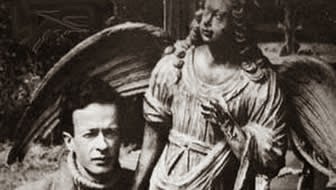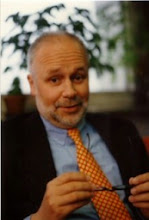I wrote about the night bird cries, the sea sounds and the lonely barking, and I liked what I wrote in flashes; but something was wrong with it. There is always something wrong with writing. So I tore the paper up at last, liking the untouched memory so much better, not wanting it forced into the insincerity of words. Als der Schriftsteller und Maler (hier ein Selbstportrait) Denton Welch das schreibt, ist er schon am Sterben. Sein Buch A Voice Through A Cloud erscheint erst posthum. Denton Welch ist immer noch ziemlich unbekannt, obwohl es sogar hier in Deutschland den Versuch gab, den englischen Dichter (der am 29. März 1915 in Shanghai geboren wurde) bekannter zu machen.
Es ist immer ein bisschen geheimnisvoll, immer lauert eine düstere, laszive Ahnung von Perversität im Hintergrund, und viele Sätze glitzern geradezu beim Lesen, schrieb Elke Heidenreich. Das ist dreißig Jahre her, da brachte der Zweitausendeins Versand Denton Welch in Übersetzungen heraus. Übersetzt nicht von irgendjemandem, kein Geringerer als Carl Weissner hat Freuden der Jugend (In Youth is Pleasure), Jungfernfahrt (Maiden Voyage) und Schicksal (A Voice Through a Cloud) ins Deutsche übertragen. Dieses schöne Bild, das ein wenig an die Präraffaeliten und die Surrealisten erinnert, heißt Harvest. Es hängt heute in der Tate Gallery, in deren Katalog sich ein langer ➱Text dazu findet.
Und der sogar eines Tages wieder Fahrrad fährt: A good subtitle for a biography of Denton Welch might be 'A Bike in the Hedge', so much is his leisure and his Journals taken up with picnicking in fields, looking round country churches or exploring the overgrown parks of once grand houses. The bike would not be locked, as this was Kent in the 1940s, a county (though it had seen the Battle of Britain) still sunk in rustic tranquillity and seclusion. Schreibt Alan Bennett im Vorwort zu dem Buch Denton Welch: Writer and Artist von James Methuen-Campbell. Sie können Alan Bennetts Vorwort ➱hier lesen. Es lohnt sich immer, ➱Alan Bennett zu lesen. Das Bild aus dem Jahre 1935 oben ist von dem englischen Maler Gerald Mackenzie Leet, der Welch kennenlernte, als beide am Goldsmiths' College Malerei studierten.
Denton Welch hat seinen Freund Gerald Leet als Mark Lynch in A Voice Through a Cloud und als Gerard Hope in A Novel Fragment (in: A Last Sheaf, 1951) hineingeschrieben. Er wusste, das Leet ein besserer Maler war als er. Ein guter Buchillustrator ist Welch sicherlich gewesen. Falls Sie sich über das seltsame Haus auf diesem Bild von Welch wundern sollten: das ➱Coffin House in Kent gibt es wirklich. Dieses Bild hat nichts mehr mit dem Präraffaeliten gemeinsam, es sieht - wie viele seiner Zeichnungen - eher ein bisschen nach ➱Samuel Palmer aus.
After I had run away from school, no one knew what to do with me, heißt es am Anfang von Welchs erstem Roman Maiden Voyage. Ein Rezensent bei Amazon hat über den Helden des autobiographischen Romans gesagt: Holden Caulfield's better mannered, fey, hyper-perceptive English cousin. Der Vergleich mit ➱Salingers The Catcher in the Rye ist sicherlich interessant, beide Autoren sind ungefähr gleich alt, als sie ihren Roman schreiben. Auch ihre Helden haben das gleich Alter. Das gilt allerdings auch für Padgett Powells Roman Edisto, der häufig mit dem Catcher verglichen wird (und über ➱den ich immer noch einmal schreiben wollte). Und man sollte bei einer solchen Betrachtung sicherlich auch noch ➱Alain-Fourniers Le Grand Meaulnes einbeziehen.
Es ist eine erstaunliche Prosa, mit der Welch das Leben seines jugendlichen Helden beschreibt. Nachdem er aus der Public School (Repton) fortgelaufen ist, schickt man ihn wieder zu seinem Vater nach China zurück. Er ist sechzehn: 'Foreigners are not very popular here,’ Mr Butler told me at breakfast. ‘So I don’t think you ought to go out alone.’ My heart sank. I hated to be dependent on other people. They would never want to do what I wanted to do. I began to feel imprisoned. I took up the moth-eaten balls and the old tennis racket which were lying in the hall, and went into the garden. I hit the balls fiercely against the stable doors until I was too hot and unhappy to go on. I sat brooding on the steps. I might have been in Sydenham for all I could see – a European villa and a line of poplars; yet outside lay a Chinese city which I was longing to explore. After lunch I decided that I could stand it no longer. Mr Butler and Mr Roote were still deep in their morning’s discussion, so I let myself quickly out of the back gate and walked along the sandy lane which led into the country. Mr Butler could not mind my walking in the country, I thought. Everything was still and silent, in an early-afternoon torpor. The only sound came from the stunted bushes which squeaked and grated linguistically as the wind passed through them. Pillars and scarves of dust and sand rose up from the ground, eddying and swirling themselves into flat sheets which hovered in the air. Harsh spears of grass stuck up through the sand. The soles of my shoes began to burn and I looked round vainly for some shady place. I enjoyed the dreamlike stillness and wanted to stay out for as long as possible. I thought that if I walked on I might find a place. The road led towards the hills. Across the sandy plain the city walls stood up like cliffs. Turrets and bastions were ruined cottages, crumbling into the sea.
Les enfants s'ennuient le dimanche, hätte er in der Villa in China bleiben sollen, da wo es aussieht wie in Sydenham? Die Welt von Welch ist eine andere Welt als die von Salinger oder Padgett Powell, es ist eine Welt zwischen China und England. Denton Welch hätte einer von den Bright young things wie Stephen Tennant (hier ein Photo von Cecil Beaton) oder Brian Howard sein können (an dieser Stelle sollten Sie jetzt unbedingt den Post ➱Wildlederschuhe lesen), doch das ist eine andere Generation. Als Denton Welch zu schreiben beginnt, hat der Zweite Weltkrieg schon begonnen, da ist Evelyn Waughs Brideshead Revisited schon ein Abgesang auf eine Generation. Es ist eine Welt, die Edith Sitwell kennt, die den jungen Denton Welch zum Schreiben gebracht hat und im Vorwort zu Dentons erstem Roman schrieb the author appears to be that very rare being, a born writer. Allerdings hat es immer wieder Kritiker gegeben, die Welch mit Tennant verglichen haben. Wie in dem schönen Satz über Welch: this cross between Stephen Tennant and James Dean, a stroppy teenager with a taste for Dresden and "mer-cats".
I greedily embraced the never-ending sadness of human life. At that moment I wanted to be overwhelmed by it. Nothing else but the sadness of destruction seemed real. I would sink down, be its victim, fall asleep in it. How can I describe the deep vibrating pleasure I felt? Perhaps it was a little like the moment just before a child bursts into tears. He knows he is going to cry, he does nothing about it, he has no shame, he wants to be drowned, to be swallowed up forever in his own unhappiness. Das Unglücklichsein, das hat er gelernt. Er hatte schon früh das Gefühl, dass er häßlich sei, dass niemand ihn liebt. Das Gefühl wird ihn niemals verlassen: When you long with all your heart for someone to love you, a madness grows there that shakes all sense from the trees and the water and the earth. And nothing lives for you, except the long deep bitter want. And this is what everyone feels from birth to death. Nur in manchen Augenblicken, wenn er daran zurückdenkt, als Vater und Mutter noch lebten, scheint er für einen Augenblick glücklich zu sein: I thought of the happiest times; when I had been a little boy, sitting by the library fire in my thick, quilted kimono, eating bread and butter and drinking hot milk, while he read to me, as I have described before. Und so wappnet er sich mit den kleinen Erinnerungen gegen das Leben (und den Tod): it was the little things... which served him best as defences against his growing weakness and his prescience of an early death.
Der Schriftsteller Jocelyn Brooke, dessen Werk thematisch viele Ähnlichkeiten mit Welch hat, hat die Tagebücher von Welch aus der Zeit von 1942 bis 1948 herausgegeben. Er hat über die Journals gesagt: it was the little things – not only dolls’ houses and chinoiserie, but things seen on a country walk, a ruined church, a flower, a young man bathing – which served him best as defences against his growing weakness and his prescience of an early death. Das Puppenhaus, das hier erwähnt wird, stammt aus dem 18. Jahrhundert, Welch hat es in der Zeit der Rekonvaleszenz liebevoll restauriert. Es steht heute im ➱Victoria & Albert Museum. Es ist diese Liebe zu den vielen kleinen Dingen, die ihn kennzeichnet.
Auch in seiner Prosa hat er immer den Blick für das Detail: I wish that people should mention the tiny things of their lives that give them pleasure or fear or wonder. Ich zitiere hierzu einmal eine Stelle aus den Tagebüchern: Why should we not admit That this is what takes place? How trying to maintain That optimist's grimace! Beauty is not less deep If it should die at last, The greatest prize men keep Is glory that is past. To-night I know all things, My heart has eyes. To-night I know all things, My heart has eyes of flesh, My spirit has birds' wings. 2 August, Monday I am sitting close to the shut-up cricket pavilion the Oxon Hoath estate under a young tree, close to a broken wire fence. The wind is blowing fiercely and the sky is thick with grey clouds. As I was reading Robert Louis Stevenson a soldier ran past in his braces, swinging a brown beer bottle. He also wore a smart peaked cap, not a forage cap. I wondered where his tunic was. He seemed to be in a great hurry. I jumped up to to watch him. He disappeared hobbling over the humpy path.
Die Vergleiche mit Proust liegen natürlich auf der Hand, auch die autobiographischen Romane von Denton Welch versuchen, die temps perdu zurückzugewinnen. Richard Hell hat den Engländer als British baby Proust bezeichnet, was sicherlich sehr witzig ist: Delicacy of perception is precisely the same thing as delicacy of description. Denton Welch is like a British baby Proust in his astounding grasp of his own (usually ‘mundane’) experience. Nothing much happens in his books but the most wonderful writing.
Man kann das mit dem most wonderful writing jederzeit überprüfen, all seine Bücher sind erhältlich, auch die in deutscher Sprache erschienenen Werke sind neu oder antiquarisch zu finden.
![[denton+welch.gif]](https://blogger.googleusercontent.com/img/b/R29vZ2xl/AVvXsEhvaIs2_iEMkI6YEl_Ve7C_u2KjW-kb1EcMnQ5NmSenHWsjqMXrXPKbCci92O2MfrivIMvtIYTERRPvXblo_dTlLPpa_8BkFOkhHg81jbhcLNPEbJrwThwShrmVok_6gDdQDZjooKETHldV/s200/denton+welch.gif)















Keine Kommentare:
Kommentar veröffentlichen